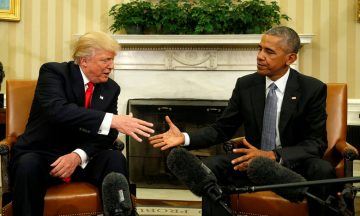Kenan Malik in The Guardian:
 “What is it,” the Austro-Hungarian novelist Joseph Roth asked rhetorically in 1927, in a preface to his book The Wandering Jews, “that allows European states to go spreading civilisation and ethics in foreign parts but not at home?” Forty years later, as American cities burned while American bombs rained down on Vietnam, James Baldwin made a similar point, though reversing Roth’s formulation. “A racist society,” he wrote, “can’t but fight a racist war – this is the bitter truth. The assumptions acted on at home are also acted on abroad.” The relationship between the internal and the external policies of western liberal democracies lies also at the heart of Pankaj Mishra’s work. The Indian-born novelist and essayist has, over the past decade, become an important and illuminating critic of liberalism and globalisation. Bland Fanatics is a collection of essays published over that time that range from excoriations of Niall Ferguson and Salman Rushdie, to a study of US president Woodrow Wilson’s hypocrisy over his support for national self-determination, to an unpacking of the irrationality of western attitudes to Islam.
“What is it,” the Austro-Hungarian novelist Joseph Roth asked rhetorically in 1927, in a preface to his book The Wandering Jews, “that allows European states to go spreading civilisation and ethics in foreign parts but not at home?” Forty years later, as American cities burned while American bombs rained down on Vietnam, James Baldwin made a similar point, though reversing Roth’s formulation. “A racist society,” he wrote, “can’t but fight a racist war – this is the bitter truth. The assumptions acted on at home are also acted on abroad.” The relationship between the internal and the external policies of western liberal democracies lies also at the heart of Pankaj Mishra’s work. The Indian-born novelist and essayist has, over the past decade, become an important and illuminating critic of liberalism and globalisation. Bland Fanatics is a collection of essays published over that time that range from excoriations of Niall Ferguson and Salman Rushdie, to a study of US president Woodrow Wilson’s hypocrisy over his support for national self-determination, to an unpacking of the irrationality of western attitudes to Islam.
Two themes link the essays. The first is the hollowness and bad faith of liberalism. In the early 1960s, the Irish academic and politician Conor Cruise O’Brien observed that those in former colonies in Africa and Asia were “sickened by the word ‘liberalism’”, seeing it as an “ingratiating moral mask which a toughly acquisitive society wears before the world it robs”. Had more western intellectuals paid attention to such hostility, Mishra suggests, had they recognised “liberalism’s complicity in western imperialism”, they might have been better prepared for the current challenges facing the liberal tradition. This leads to the second theme in Bland Fanatics – the significance of the non-western world in shaping history and blindness of western liberals to that world. Mishra takes aim at “prettified” histories of the “rise of the ‘democratic’ west” in which “centuries of civil war, imperial conquest, brutal exploitation and genocide” are glossed over in accounts of “how westerners made the modern world and became with their liberal democracies the superior people everyone else ought to catch up with”.
…Mishra argues here (in an essay written the year after The Age of Anger was published) that the election of Trump represents the “last and most desperate phase” of a journey that moves through “colonialism, slavery, segregation, ghettoisation, militarised border controls and mass incarceration”.
More here.
